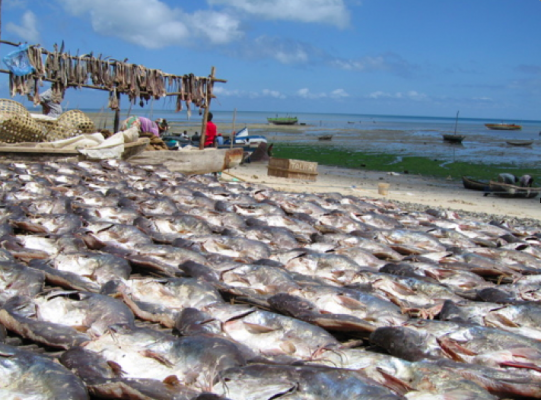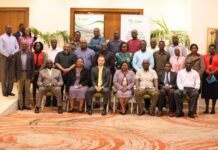Mozambique’s Ministry of the Sea, Inland Waters and Fisheries (MIMAIP) is set to collect over US $6m in revenue during the 2021 fishing campaign recently opened across the country. Among the plans for the ongoing campaign, MIMAIP will also license 536 industrial and semi-industrial fishing vessels as well as 6,066 recreational and sports fishing practitioners.
According to media, the minister of the portfolio, Augusta Maita said the plan will demand from everyone additional efforts, because of the challenges brought by the Covid-19 pandemic, and the adoption, in January, of the Regulation on Maritime Fishing (REPMAR).
“REPMAR is an innovative instrument on the management and planning of fisheries, which has been largely disseminated at every level by the ministry, calling on fishermen, sellers of fishing gear, processors of fisheries produce and other stakeholders to have a broader knowledge of the norms within the regulation,” Maita said.
After extensive consultation with the stakeholders, MIMAIP, she said, passed recently the Management Plan for 2021/25 which will guide the measures to ensure sustainable catches of fish and crustaceans.
However, Maita berated the reduction in the size of the Mozambican fishing fleet. This mostly affects the semi-industrial fleet, caused by a number of reasons such as the vessels’ obsolescence and poor re-investment capacity by the fishing companies. The situation has contributed to a reduction in the production targets and consequently in the government’s annual plans.
Since the Covid-19 pandemic has worsened the country’s situation, Maita urged every stakeholder to identify the most effective strategies to deal with the challenges facing the growth and development of the fisheries sector.
According to FAO, 65 600 people were reported as engaged in fisheries in Mozambique in 2016. There are a significant number of women involved in fishing with small seines, on foot, and picking of seafood (particularly clams) especially in the protected areas of the coast. Per capita consumption of fish products was estimated to be about 11.4 kg in the same year.









